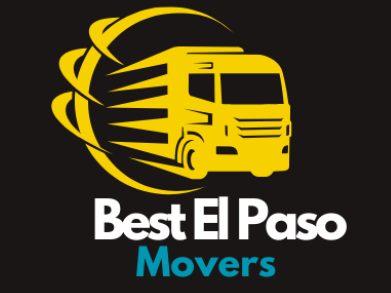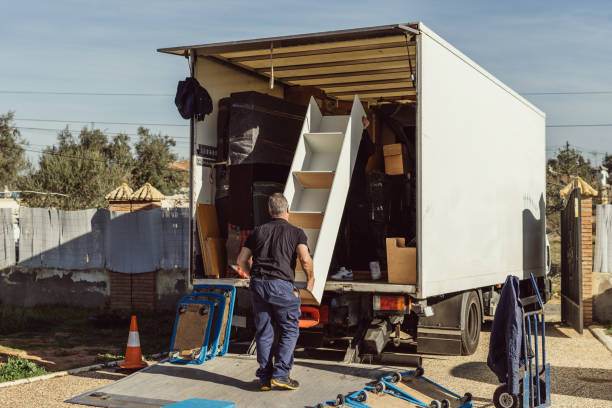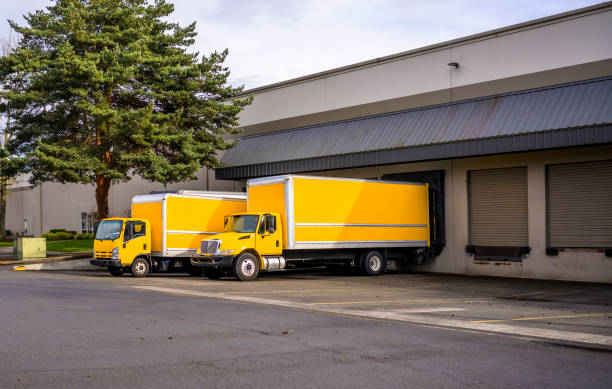Moving can be a stressful experience, and choosing the right moving company is crucial to ensuring a smooth transition. With so many options available, it’s essential to know what to look for when selecting a mover. This guide will help you understand the factors to consider, questions to ask, and red flags to avoid when hiring a moving company.
1. Start with Research
Before you hire a moving company, research different options and create a shortlist. Look for movers that offer services in your area and have good reviews.
Where to Start:
- Online Reviews: Check Google, Yelp, and the Better Business Bureau (BBB) for customer feedback.
- Recommendations: Ask friends, family, or colleagues for personal experiences.
- Company Website: Visit their website to check their services, credentials, and contact information.
2. Verify Credentials and Licensing
A reputable moving company should have the necessary licenses and insurance to operate legally. If you’re moving within the same state, check with your local moving authority. For interstate moves, the company must be registered with the Federal Motor Carrier Safety Administration (FMCSA) and have a U.S. DOT number.
What to Check:
- Licensing: Verify the company’s U.S. DOT number through the FMCSA website.
- Insurance: Ensure they offer basic liability protection and ask about full-value protection.
- Accreditations: Look for affiliations with organizations like the American Moving & Storage Association (AMSA).
3. Get Multiple Estimates
Request at least three quotes from different movers to compare prices and services. Be wary of quotes that are too low, as they may indicate hidden fees or potential scams.
Types of Estimates:
- Binding Estimate: A fixed cost based on an in-home or virtual survey of your belongings.
- Non-Binding Estimate: The final price may change based on the actual weight of your items.
- Binding Not-To-Exceed Estimate: You pay the quoted price or less, but never more.
4. Ask About Additional Fees
Some moving companies may charge extra fees for specific services. Understanding these costs upfront can prevent unexpected charges on moving day.
Common Additional Fees:
- Stair Fees: If movers need to carry items up or down multiple flights of stairs.
- Long Carry Fees: If there is a long distance between your home and the moving truck.
- Packing Services: Additional costs if movers need to pack your belongings.
- Storage Fees: Charges for temporary storage if your new home isn’t ready.
5. Check Their Experience with Your Type of Move
Not all movers specialize in every type of relocation. If you have special requirements, make sure the company has experience handling similar moves.
Moving Specialties:
- Residential vs. Commercial Moves – Ensure they are experienced in your type of move.
- Long-Distance Moves – Confirm they have the proper licensing and equipment.
- Specialty Item Moving – If you have pianos, antiques, or valuable artwork, ask if they have expertise in handling them.
6. Read the Contract Carefully
Before signing any agreement, go through the contract in detail. Make sure it includes all necessary information about pricing, services, and liability.
Key Things to Look For:
- Company’s Full Name and Address
- Pricing and Payment Terms
- Liability and Insurance Coverage
- Cancellation Policy
- Delivery Window
7. Look Out for Red Flags
Moving scams are common, so it’s crucial to watch out for warning signs that a company may not be trustworthy.
Warning Signs of a Scam:
- No Physical Address: Avoid movers without a legitimate office or address.
- Extremely Low Estimates: Too-good-to-be-true pricing often leads to hidden charges.
- Large Upfront Deposits: Reputable companies don’t require large deposits before moving day.
- Lack of Insurance or Licensing: If they can’t provide proof, consider another company.
8. Confirm the Moving Day Details
Once you’ve chosen a moving company, confirm all the moving day details in advance to avoid last-minute surprises.
Final Checklist:
- Arrival Time: Confirm when the movers will arrive at your home.
- Payment Method: Know whether they accept credit cards, checks, or cash.
- Delivery Timeline: Ask for an estimated delivery window for long-distance moves.
9. Understand Your Rights and Responsibilities
The FMCSA’s ‘Your Rights and Responsibilities When You Move’ guide provides essential information on what to expect when hiring a mover. Review this document to ensure you’re fully aware of your legal rights.
Key Rights:
- Protection Against Lost or Damaged Items
- The Right to File a Claim
- Access to a Dispute Resolution Program
10. Leave a Review After Your Move
Once your move is complete, consider leaving a review to help others make informed decisions. Share your experience, including the company’s professionalism, pricing, and overall service quality.
Final Thoughts
Choosing the right moving company takes time, but by doing thorough research, verifying credentials, and asking the right questions, you can ensure a smooth and stress-free move. Whether you’re relocating locally or long-distance, following these steps will help you find a trustworthy mover that meets your needs.
Need expert moving services? Contact Best El Paso Movers today for a seamless moving experience!




